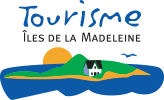

During a meeting held on Friday, April 15, the members of the Recreational Tourism Cluster committee took the opportunity to examine last year's realizations. They also discussed the ongoing and upcoming activities and projects.
Among the highlights of the 2015-2016 period, we note the completion of the experiential tourism pilot project, which allowed a group of businesses to create new activities and improve their traffic. Furthermore, the project received the Best Strategy for Creative Tourism Development award as part of the 2015 Creative Tourism Awards. Consisting of international experts, the panel of judges recognized the quality, originality and innovative nature of the approach coordinated by the Recreational Tourism Cluster and its partners.
The economic mission in Montréal is one of the many activities facilitated by the cluster. Organized in partnership with the agglomeration of the Îles-de-la-Madeleine and the city of Montréal, the one day program allowed the local entrepreneurs to meet their counterparts from Montréal to create business relationships, network, and share their expertise.
The event « Ensemble, innovons! », organized in partnership with Tourisme Îles de la Madeleine and the Living Lab en innovation ouverte (LLio) of Rivière-du-Loup, was without any doubt one of the highlights of the year. Focused on innovation in terms of tourism experience and service development, the co-creation activities allowed the participants to create new valuable partnerships. Various inspiring examples regarding the insular and remote contexts were also presented.
Regarding the training and development of the tourism industry workforce abilities, the cluster facilitated the consultation with the businesses, and contributed to the promotion of various interventions on the territory. Among those, we note the professional cooking training program created by the Service aux entreprises of Groupe Collegia. The training combined different sections, including innovative trends in cooking, the profitability of businesses and their ability to attract and maintain professional staff, etc.
The Recreational Tourism Cluster begins the last year of its five-year strategy (2012-2017). Thus, the cluster will focus its interventions on collective actions. Various initiatives are ongoing with the partners and businesses targeted by the cluster.
Among these we note: the co-creation of an improved tourism experience by the museum network of the Îles de la Madeleine, the creation and implementation of a promotional strategy by the Visual Arts and Handicrafts Circuit of the Îles de la Madeleine, the development and marketing of distinctive tourism experiences during low season, the organization of a networking activity gathering the food and cultural tourism businesses, and the creation of a specialized tool for outdoor businesses.
Nonetheless, to ensure the development of the ACCORD strategy in the archipelago, the cluster must consolidate the funding for its operations. The equitable sharing of funding for the operations of the cluster in both tourist regions is part of the solution. According to the president of Gaspésie-Îles-de-la-Madeleine's Recreational Tourism Cluster, Stéphane Sainte-Croix, "the ongoing funding model (two third of the budget in Gaspésie, one third in the Islands) is inequitable and generates consequences on the management of the cluster, especially for the engagement of businesses."
He also notes that "We should be looking at the model implemented by the Northern Tourism cluster of excellence in the Nord-du-Québec administrative region: one cluster, two tourist regions (James Bay and Nunavik) and two cluster directors. In Northern Québec, the Ministère de l'Économie, des Sciences et de l'Innovation provides equal funding for the cluster's operations in both destinations."
Photo : Members of the Tourism Cluster in the Îles de la Madeleine : François Turbide (culture), Johanne Vigneault (food tourism), Jason Bent (cluster manager) and Frédéric Côté (nature tourism).
Sources :
Cluster Manager
Cluster President